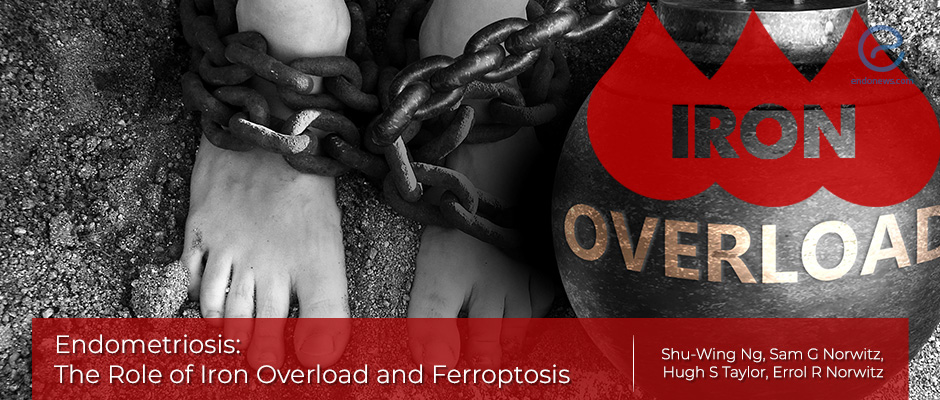Defective “ferroptosis”: a new pathogenetic explanation of endometriosis
May 11, 2020
A new theme in endometriosis: resistance to iron-mediated programmed cell death
Key Points
Highlights:
- Ferroptosis is a distinct programmed cell death mediated by iron, causing random but widespread lipid peroxidation of cell membranes.
- Disarranged iron homeostasis is suggested to be effective in the development of endometriotic lesions with localized iron overload and inflammation.
Importance:
- A better understanding of ferroptosis cell-death mechanisms may improve our understanding of endometriosis pathogenesis.
- This may also provide a unique perspective on diagnosis and treatment.
What's Done Here:
- This is a comprehensive review of disarranged iron-mediated programmed cell death, i.e., ferroptosis, in the development of endometriotic lesions, proposed by the authors.
Data:
- Iron, the most common transition metal in cells has the propensity to gain or lose electrons by different oxidation states and serves every cell for a variety of fundamental enzymatic reactions and oxygen-carrying proteins.
- Iron deficiency has long been a well-known risk factor for disorders of reproduction, but ironically, excessive iron intake and iron-overload states are also harmful.
- Ferroptosis is mediated by intracellular iron overload, it is regulated by factors that alter iron metabolism and downstream lipid peroxidation.
- Ferroptosis dysregulation has been implicated in a variety of diseases, including cancer, neurodegenerative diseases, .. and specifically ischemia/perfusion injuries.
- According to the authors, eutopic endometrium has resistance to iron-mediated programmed cell death, i.e., ferroptosis; and has an important potential role in its maintenance.
- Also, there may be a link between ferroptosis-related stress, endometriosis, and hypercholesterolemia.
Lay Summary
Dr. Ng and associates from Tufts University School of Medicine, Boston, USA made a comprehensive review of the role of the iron element in the development of endometriotic lesions. Though iron element is essential for cell survival, and its deficiency is important in reproductive disorders, iron excess is equally harmful.
In endometriosis, eutopic endometrium has resistance to the process of iron-mediated programmed cell death, i.e., ferroptosis. As far as eutopic endometrial cells do not undergo programmed cell death by ferroptosis, the cells which need to be removed from the body will survive, and implant on the peritoneum and the abdominal cavity when spread by retrograde menstruation, leading endometriotic lesions.
Localized bleeding and inflammation within these ectopic lesions results in an environment rich in iron and free radicals promoting adhesion and growth. The iron overload in patients with endometriosis is localized to the peritoneal cavity which is not reflected by total body iron content.
Localized iron excess and inflammation caused by it adds to the further progression of endometriotic foci. Endometriotic foci seem to have mechanisms allowing them to benefit from increased intracellular iron in terms of energy and cell proliferation.
There is also a link between ferroptosis and hypercholesterolemia acting via a mevalonate cholesterol biosynthetic pathway thereby signaling a molecular aspect for this progression. A hyperactive mevalonate pathway in women with hypercholesterolemia may be protective for endometriotic tissues.
"Unraveling the molecular and cellular mechanisms in resistance to ferroptosis will not only improve knowledge concerning endometriosis but may also provide unique approaches to diagnosis and treatment", the authors concluded.
This comprehensive review is recently published in "Reproductive Sciences".
Research Source: https://pubmed.ncbi.nlm.nih.gov/32077077
iron ferroptosis endometriosis endometrioma abdominopelvic cavity retrograde menstruation

